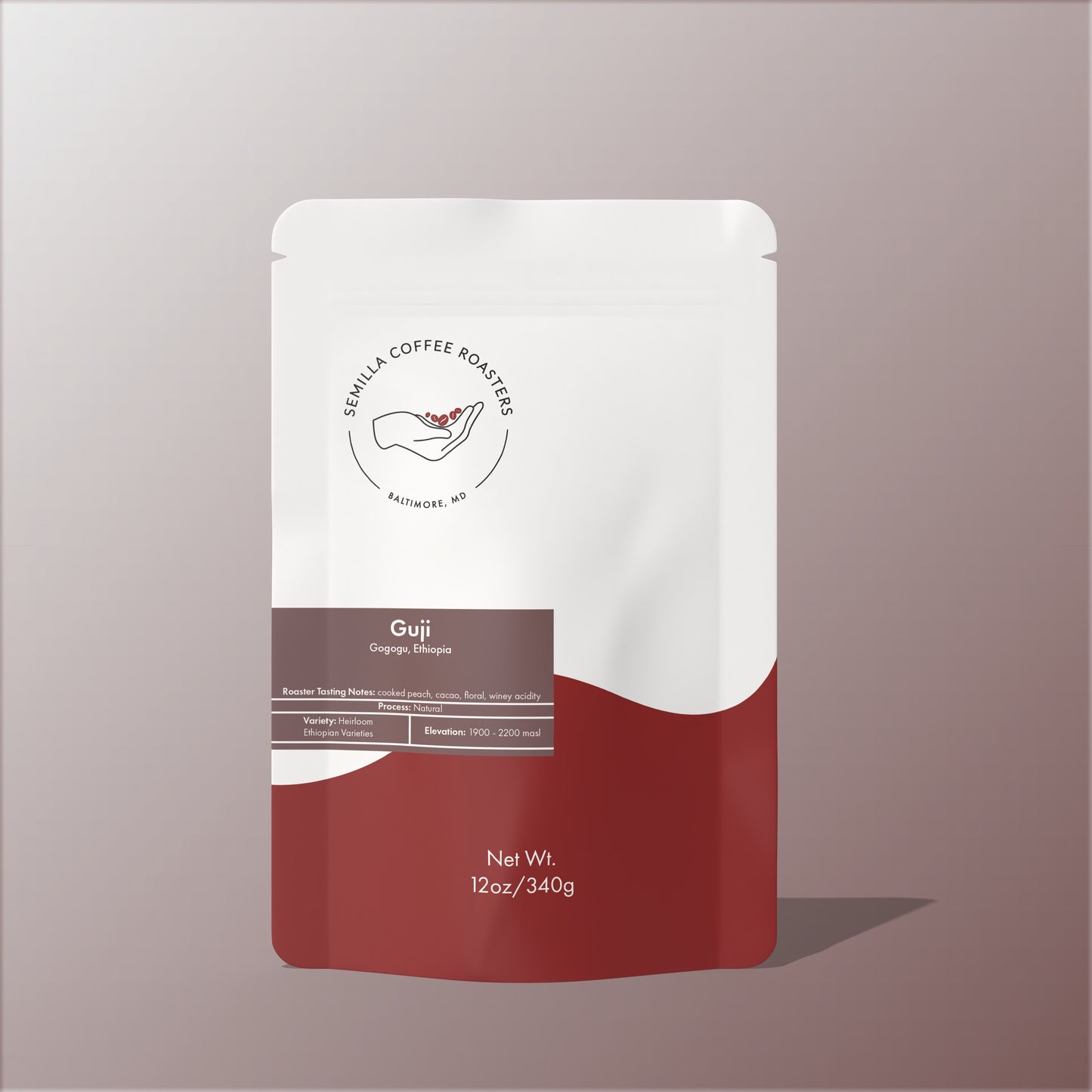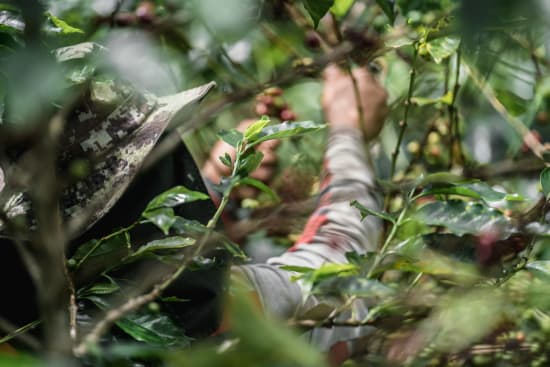Guji Natural | Light Roast
Guji Natural | Light Roast
Couldn't load pickup availability
Traceability of the coffee:
Roast Level: Light to Medium
Roaster Tasting Notes: Cooked peach, cacao, floral, winey acidity
Variety: Heirloom Ethiopian Varieties
Score: 89 points
Crop Year: 2025
Process: Natural
Altitude: 1900-2200 masl
Guji Ethiopia
This coffee comes from the Gogogu washing station in the Kofee district of Guji, Ethiopia, a region celebrated worldwide for producing some of the most vibrant and unique coffees. Over 700 smallholder farmers, each with about 2 hectares of land, bring their ripe coffee cherries to Gogogu, where they are carefully processed in the traditional Ethiopian way. Harvest runs from mid-December to February, with cherries dried slowly on raised beds under the warm Ethiopian sun.
At Gogogu, farmers deliver freshly picked cherries that are sorted, weighed, and processed naturally, meaning the coffee dries inside the fruit itself. This traditional method highlights the bean’s natural sugars and fruity complexity, resulting in a cup bursting with juicy notes, floral aromatics, and a smooth, sweet finish. With no pesticides or chemical fertilizers used, the coffee reflects the pure, organic flavors of the Guji highlands.




